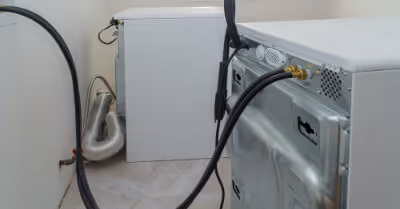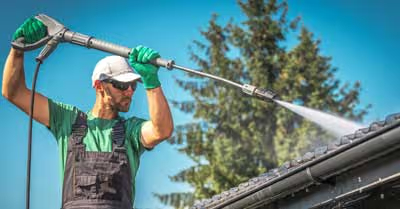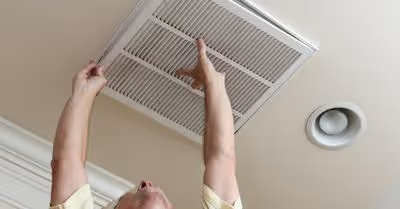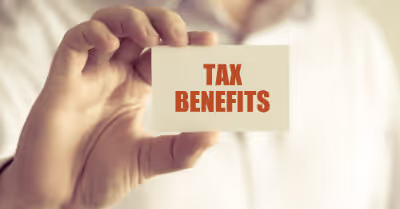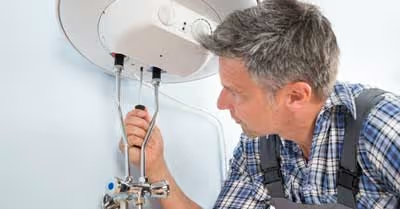Table of Contents
Getting a Mortgage When Self Employed
Before approving loan or mortgage applications, lenders have to ensure the borrower is in a position to repay their loans. And having a reliable source of income is an important part of that process.
As you may expect, verifying the borrower's employment and source of income is a big part when it comes to mortgage application and approval. For people with a regular paystub, the income verification process is quite fast and straightforward.
But for the self-employed individuals, the process is not easy. They must prove their businesses are generating enough profits that would enable them to make the required monthly mortgage payments.
Therefore, before your application can be approved, your mortgage lender will check the stability of your business, the nature and location of your business, and the current financial strength of the business.
Mortgage lenders will also check whether your business is stable enough to continue servicing the mortgage payments throughout until it's fully paid.
However, as much as self-employed individuals may not be as attractive borrowers as their salaried counterparts may, it doesn't mean that they can't get mortgages. There are plenty of mortgage products for self-employed borrowers, as we will discuss later on.
Eligibility Requirements
So, what determines whether you qualify for a mortgage when you are self-employed? First, it's important to define what qualifies as self-employment. If you have a 25 percent or larger ownership interest in a certain business, then you are considered a self-employed individual. Independent contractors, freelancers, gig workers and small business owners also fall in this category.
If you fall under the category of self-employment, then the mortgage lender will go a step further and check your capability of successfully running a business.
In most cases, you will be required to have been successfully running a business for a minimum of 2 years.
Also, you will have to provide supporting documentation that proves that your income has been consistent during those two years.
If you have not been in business for at least 2 years, you can still qualify for a mortgage based on your related field expertise.
For example, you may have been employed by a company or organization for some time, and then you decided to become self-employed.
In such a situation, if you've been running your business for at least 12 months and the income earned during that period is equal or more than what you used to earn in your salaried job, then you may still qualify for a mortgage.
Steps to Follow
Regardless of whether you've been running your business for 2 years or 10 years, applying for a mortgage will always be a lengthy process. Here are the steps that you will have to complete if you are a self-employed mortgage borrower:
Income Verification
Income is the main determinant when it comes to getting approved for a mortgage, if you are self-employed.
Therefore, your mortgage lender will first go through your income records to check and verify how much you earn as well as the stability of your income.
To determine your income and stability, your mortgage lender will ask you to provide the following documentation:
- ****Tax Returns: Your mortgage lender will ask you to submit both personal and business tax returns. Your lender will then go through these returns to determine your eligibility for the loan.
- List of current debts: If you are servicing any debts at the moment, you will also be required to provide that information. Your lender will want to know how much money that is going towards your debt payments, to determine the mortgage size that you qualify for.
- Verification of self-employment or business: Stating that you are self-employed will not be enough. Therefore, your lender may request you to see proof of your business or self-employment status. A business license, a statement from your accountant, letters from clients, or membership in a professional organization will help to verify your self-employment status.
- Declaration of assets: Mortgage lenders want to see proof that a borrower has enough money to put a down payment. So, they may ask you to submit a list of all your assets.
- Bank statements: Bank statements are normally required for borrowers who are applying for bank loans. Even if you've already submitted your tax returns, your lender may still want to see your bank statements.
- Additional income sources: If you have some additional sources of income such as social security, a side hustle or alimony, your lender will also ask you to submit that information to support your application.
Also, you will be required to complete and submit IRS Form 4506-T, which allows third parties to access your tax records. Some mortgage lenders may require you to provide additional documentation like statements from your business accountant.
The exact documents needed will vary from one lender to the other. The most important thing is to provide accurate and valid documents.
Before you submit the required documents, you should ensure they are organized and up to date. The easier you make it for the lender to check and verify your paperwork, the higher the chances of being approved for the loan.
Credit Assessment
Apart from your income, mortgage lenders will also check your credit score to determine whether you are eligible for a mortgage or not. Most mortgage lenders go for a minimum credit score of 620.
Considering that income stability is usually considered an issue for self-employed borrowers, you should ensure you have a strong credit profile. The higher the credit score, the greater your chances of securing the mortgage.
Someone with a credit score of 700 stands a better chance of getting approved for the mortgage compared to someone whose credit score is 620.
Therefore, as a self-employed borrower, you need to monitor your credit score regularly and check for any errors that may be present on your report.
So, before you start the mortgage application process, make sure you request a copy of your credit score and go through it carefully.
In case your credit report is not as good as it should, you will have ample time to raise it to decent levels before you begin the mortgage application process. Repaying your debts on time and not opening new credit lines are some of the things that you can do to raise your credit score.
Debt to Income Ratio
The debt to income ratio is a measure of whether your income can comfortably support the mortgage you are applying for. The mortgage industry applies two main types of ratios - housing ratio and total debt DTI.
Housing ratio is the borrower's new monthly mortgage payment divided by their stable monthly income.
For instance, if a borrower's stable monthly income is $8,000 and their new monthly mortgage payment will be $2,000, then the housing ratio will be $2000 divided by $,8000, which is 25%.
Total debt DTI, on the other hand, is the borrower's new house mortgage payment in addition to all non-house recurring debts, which is then divided by the borrower's stable monthly income. For instance, if your monthly income is $8000, your monthly mortgage payment will be $1,500 and your non-recurring non housing debt is $500, then your total debt DTI will be 25%, which is $2000 divided by $8000.
Recurring non-housing debt may include things like student loans, car loans, child support, monthly payments for credit cards, as well as other debts that you may be servicing.
The minimum allowable ratios are 28% for the housing ratio and 36% for the total debt DTI. If both of your ratios fall within these minimums, then you may qualify for a mortgage. But if you've exceeded them, then the likelihood of getting the mortgage will decrease.
If you have student loans, credit card debts, a car loan or any other type of loan, then you should first focus on paying them before you apply for the mortgage.
Assets and Down payments
Mortgage borrowers are required to make a certain down payment towards their mortgage. And self-employed individuals are no exception. The problem is, self-employed borrowers will be required to make a larger down payment, compared to salaried borrowers.
For example, a salaried borrower may get a mortgage after making a down payment of only 5%. On the other hand, the self-employed borrower will be required to make a down payment of approximately 20%, for a similar mortgage amount.
So, if your business or company has a strong asset base and you can afford to make a large down payment, then your chances of getting approved for the mortgage are quite high.
Cash Reserves
Mortgage payments are due every month, whether your business is making or not. Due to such situations, some mortgage lenders will require you to have a certain level of cash reserves.
Having a substantial amount of money in the bank will help you to make your monthly payments on time, in case things are tight. If possible, you should have at least a year's worth of mortgage payments in the bank.
Another reason why you need an emergency fund is that you may have to undertake some emergency repairs on your house. And when you are already servicing a mortgage, taking on another debt is not advisable.
Steady Work
Most salaried individuals clock approximately 40 hours per week. And this is easy to verify using the available employment records. On the other hand, quantifying the work input of a self-employed individual is a little more challenging.
But regardless of the nature of your business, your lender will want to see that you have steady or regular work available to you.
If you've been in business for several years, then your tax returns will be enough to prove that. But if your business is relatively new, then you can just show the lender some contracts that you already have with clients.
The contracts will indicate the nature of work that you are doing for the clients, the duration of the contracts as well as the payment amount. And these details will show your lender that you are in a strong financial position to service the mortgage on time.
Self Employed Mortgage Options
If you are self-employed and you are looking to buy a house, you have numerous mortgage options for your consideration.
The best mortgage for you will depend on your income, your credit score, the amount you can manage to put as a down payment as well as where you intend to buy the home. Here are some of the mortgage options available for self-employed individuals:
FHA Loans
FHA Loans are loans that are insured and guaranteed by the US Federal Housing Administration or FHA. While the FHA insures and guarantees these loans, it doesn't issue them. Instead, they are issued by a bank or mortgage lender.
In case you default or you are not in a position to pay back the mortgage, the FHA will step. Since these loans are insured and guaranteed by the FHA, the risk on the lender is quite low, meaning that even self-employed individuals with a poor credit score can qualify for them.
If you qualify for these loans, you will be required to make a down payment of at least 3.5%. You will also be required to pay for mortgage insurance of 1.75% at closing as well as an additional fee of between 0.45% and 1.05% per year.
Mortgage insurance is payable throughout the loan's life, even if you managed to make a down payment of 20%. In short, these loans may not be the best option for someone who can raise a down payment of 10% or more, due to the expensive loan terms.
Conventional Mortgage
Conventional mortgages are home loans that are not guaranteed by the government. As opposed to government-backed loans, the mortgage lender assumes a bigger risk whenever they issue a conventional mortgage.
And as you may expect, conventional mortgages come with tougher eligibility requirements, as opposed to other types of mortgages.
You will need to have a high credit score to be considered for this loan. Also, you will be required to put down a large down payment of approximately 20% for you to get this mortgage.
In case you can't manage to put a down payment of 20%, you will be required to pay for private mortgage insurance besides the monthly principal payment and interest.
Most conventional loans come with a term limit of approximately 30 years. You can either opt for a shorter duration or a longer payment duration, based on your income.
If you opt for a longer payment duration, you will pay lower monthly payments than someone who opted for a shorter duration. On the other hand, you will end up paying more in interest, as opposed to a borrower who chose a shorter payment duration.
Conventional mortgages for self-employed also come with the option of a fixed interest rate or an adjustable-rate. As the name suggests, the fixed interest rate remains constant throughout the loan's lifetime while the adjustable rate fluctuates depending on the market conditions.
USDA Loans
If you love living in the countryside or you are willing to relocate to the rural areas, then you should check out the U.S Department of Agriculture loans or USDA loans. Unlike other types of mortgages, you don't have to make any down payment when you qualify for USDA loans.
There are two main types of USDA loans: guaranteed loans and direct loans. Direct loans are issued by the Department of Agriculture. On the other hand, guaranteed loans are normally issued by private lenders. However, the Department of Agriculture guarantees up to 90% of the value of the loan.
Just like other types of loans, you will have to meet the eligibility requirements to get these loans. For instance, you have to buy a home in an eligible area. Also, you must be a low-income earner for you to qualify for USDA loans.
VA Loans
These loans are issued by the U.S Department of Veterans Affairs. As you may expect, VA loans are only issued to individuals who have served in the armed forces.
You should have served for a minimum of 90 total days to qualify for these loans. You can also qualify for VA loans if you were discharged from duty because of a service-related disability - even if you haven't served for 90 total days.
Also, if you are the spouse of someone who died while serving, then you can also enquire about VA loans.
With VA loans, you can also buy a house without a down payment, just like USDA loans. Interest rates and closing costs for VA loans are among the lowest on the market.
No Documentation Loans
As the name indicates, a no-documentation or a no-income verification mortgage is a type of loan where the lender doesn't seek to verify your income details. So, if your tax returns show that your business has not been performing well over the last couple of months, then a no-documentation loan will be a great choice.
Since the lender assumes all the risks, no-documentation mortgages come with extremely high-interest rates, compared to other types of loans.
Also, you will be required to put down a substantial down payment, which may be approximately 20% to 40% higher than what you would put down on a normal loan.
Furthermore, the minimum credit score required to qualify for no-income verification mortgage loans is also quite high.
If you are self-employed or your income streams are a bit seasonal, documenting your income may prove to be an issue, making it no-documentation loans a great choice.
However, you should only apply for these mortgages if you are sure that your income streams are sufficient to repay them.
Common Misconceptions
When it's time to apply for a mortgage, you will come across lots of misleading information about the entire process. Here are some of the common misconceptions and myths about getting a mortgage when you are self-employed:
- Lenders will check your gross revenue: When processing your mortgage application, lenders are not interested in your gross revenue or income. Also, they will not use the adjusted gross income stated on your tax returns. Instead, they are more interested in your net business income, that is, the amount of money that your business remains with after you've deducted all the business expenses. As a result, the size of the mortgage that you qualify for will be smaller. But this also means that you will be able to pay it back comfortably.
- You will need a co-signer: Some people will tell you that you will need a cosigner when applying for a mortgage. However, these claims are not true. Even if you are self-employed, you don't need a cosigner to get a loan to buy a house. As long as your income is steady, you have excellent credit and your business projections are solid, then you should be in a position to get a mortgage on your own. As much as having a co-signer for your mortgage can sometimes be helpful, it's no longer a requirement.
- You will abnormally high interest rates: Mortgage interest rates are determined by the type of loan that you are applying for, the amount, the repayment duration, credit score, home location, home price, down payment, and interest rate type. So, being self-employed or salaried doesn't really determine your interest. In fact, if you have a decent credit score, you put a down payment of 20%, and you secure a 15-year mortgage, you may end up paying a lower rate than an employed individual with a poor credit score, who puts a down payment of 30% for a 30-year mortgage.
Buying a house is a monumental task, especially for self-employed individuals. But with rents increasing rapidly every year, buying a house makes financial sense for self-employed individuals.
Whether you've been in business for 10 years, 5 years, or 2 years, most self-employed people can qualify for different types of mortgage loan to buy a house. You just need to choose a mortgage that aligns best with your situation and then complete the required paperwork.
Recent Articles




